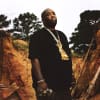Last week, I flew to Québec for Pop Montreal, the annual “festival international de musique” that lasts for five days and hosts more than 400 artists across dozens of the city’s venues: dimly-lit bars, majestic theaters, crowded nightclubs, a few old churches. Looking at programs from years’ past, the sprawling 2013 lineup felt pretty anti-headliner and almost squarely focused on the emerging, left-of-center songwriters who are actively redefining what it means to be “pop.” I don’t speak a word of French, and my only semblance of a formal plan was a list of 10-12 artists I wanted to see that I’d scribbled on the back of a printed-out email.
Leaving the airport, I switched off the “roaming data” on my iPhone. That meant that unless I was connected to Wifi, I wouldn’t receive iMessages, I couldn’t scroll through Twitter, and I wouldn’t have Google Maps to help navigate a foreign metropolis. The gesture was cathartic in a kind of pathetic way—it made me feel like I was much further from New York than I actually was. A Maxwell song from the ’90s came on the radio and I snapped a picture of the Montreal skyline through the window.
The first band I saw was Mori, a group from Montreal that plays woozy, drug-referencing, futuristic pop, a style that seems to be near the epicenter of the city's sonic landscape. Between songs, the keyboardist said something in French and the only words I caught were “cassette” and “Fleetwood Mac.” I bought a strong beer with American money and ran into an old friend from Boston. We caught up while Empress Of, the electronic pop project of Brooklyn’s Lorely Rodriguez, set up on the stage. In the 11 months since Rodriguez played her first show in Williamsburg to about 15 people, she has put out an EP on Chris Taylor of Grizzly Bear’s Terrible Records, toured North America with Jamie Lidell, and recorded new songs with her old band, Celestial Shore. Showing off her beautifully all-over-the-place vocals and a noticeably heightened synchronicity with her live band, Empress Of performed a handful of technicolor electro jammers. Between songs she was giggly and maybe a bit nervous; she let her drummer know which track was next by perfectly mimicking the synth sounds with her voice. After the show I stopped at Schwartz’s, Montreal’s landmark delicatessen, and ate a sloppy smoked meat sandwich. The hype is definitely warranted, even though they charged me $2.00 for tap water.
On Thursday morning I walked over to Pop Headquarters, which was inside a beautiful old building that used to be a fully functioning fine arts college, back before Montreal’s “Quiet Revolution” in the ’60s. I downloaded the festival’s official iPhone app, which thankfully didn’t require Wifi to run, and a girl taught me how to ask “parlez-vous anglais?” I headed to the top floor of the building, where Pop was hosting a series of panels about music and art throughout the weekend. I sat in on a discussion about Baz Luhrmann’s Great Gatsby soundtrack with panelists including the VP of Music at Warner Bros, an indie music licensing representative and Montreal-based DJ Kid Koala, who did some production work on soundtrack. “We didn’t want it to sound like a Woody Allen film,” said Anton Monsted, the film’s music supervisor, who joined the conversation via Skype. “We wanted it smelling and tasting like its own thing.” Apparently a 15-year-old Lorde also penned a song for the movie, but it was swapped out for Lana Del Rey’s kind-of-perfect contribution at the last second.
That afternoon, I caught the last few songs of Born Gold’s set in a park in Little Italy, a neighborhood just past the train tracks that cut across the city. The outdoor PA system wasn’t quite loud enough for the basement dance-party music made by Edmonton native Cecil Frena, formerly known as Gobble Gobble, but the energy was there. After that, I headed over to Breakglass, a small studio in a bleak, industrial part of town where Jennifer Castle was getting ready to play an intimate show. With so much electronic music—at Pop and in the contemporary music climate in general—it was almost disorienting to watch a songwriter play plaintive, timeless folk songs with just a big, vintage electric guitar to accompany her. Castle, who dedicated her entire set to incarcerated Pussy Riot member Nadezhda Tolokonnikova, sang lines like If it’s my body you’re after/ Then Lord send me laughter/ And honey don’t be long with my drink and everyone in the room melted. Later, while eating a plum and sipping a Carlsberg from a brown paper bag, my phone buzzed with a notification from the Pop app: Tim Hecker in 15 minutes.
The last time I saw Tim Hecker perform was at an outdoor festival, during the day, in the rain. At Montreal’s 90-year-old Rialto Theatre, a former movie palace, he wore black and played in total darkness. The world-swallowing, 45 minute-long soundscape he created was, like the individual tracks he’s been teasing from his Virgins LP, creepy and dramatic with fleeting moments of explosive warmth. I was less than 10 feet from the stage, and even after my eyes adjusted, I couldn’t really see him. But the bass made my teeth chatter.
Just across the street at the Cabaret Playhouse, I watched Arbutus Records band TOPS play a set of slinky, feather-light songs that sounded like FM radio hits from a distant utopian future. After that, NYC experimental percussionist Gobby drummed for 25 minutes over syncopated electronics while psychotropic visuals flashed from behind him. Like the other times I’ve seen Gobby perform in New York, I didn’t completely understand what was happening, but it was cool. Well after midnight, a four-piece from Calgary called Viet Cong played at a dive bar called L'escogriffe, where you can get two shooters of Fireball whiskey for $5, a great deal if you enjoy things like Big Red chewing gum and throwing up in public toilets. Viet Cong’s lineup includes Matt Flegel and Mike Wallace, both former members of the late, great Alberta band Women, and they played sharp avant-rock with a reckless punk energy, like if Marquee Moon had been conceived in a garage in the Canadian prairies. I got pushed around by a lot of drunk college kids, and someone handed me a shot of Fireball. On my way back downtown, I bought $2 chow mein from a guy on the street.
On Friday I saw Solar Year at Breakglass Studios. The Canadian duo requested that everyone squat on the floor while they serenaded us with half-speed electronic textures from behind a thick curtain of dry-ice fog and neon laser beams. It was pretty trippy, so when they asked us to stand for the last song, I didn’t really want to—I was content in my little dreamworld on the ground. Later on, after hearing incredible vocalist Angel Olsen flood the Ukrainian National Federation with her vulnerably massive chops, I walked over to see Majical Cloudz perform at Salle Rossa, a rock club above a Spanish restaurant. It was a bit of a homecoming for Ontario-born Devon Welsh, the duo’s charmingly solemn singer, who found his community of like-minded peers in the Montreal scene, many of whom had turned up to this show. “This song is dedicated to everyone who’s been to my apartment recently,” he said. The sound was mixed perfectly: Matthew Otto’s minimal beats were physically resonating, while Welsh’s big voice powered through stark, self-aware lyrics about drugs and friendship and feeling low. Between songs we waited there, in pretty much dead-silence, for him to start singing again. “Are you guys okay?” Welsh asked at one point. I heard a girl crying behind me.
Saturday was really sunny. I spent most of the afternoon in a spacious loft called The Plant, a spot that hosts DIY shows, film screenings and other community-minded happenings including a weekly event called “Noise Sundays” that’s part experimental concert, part potluck dinner. There was a small zine library, show flyers on most surfaces, and disembodied light bulbs dangling from the ceiling. They had a small backyard, too, where you could sit in the sun alongside the train tracks and still hear the music coming from inside. I saw local songwriter Ollie North play a set of ambient downer pop, stacking a bunch of guitar parts on top of each other like Lincoln Logs to create a big, weird wall of sound. It’s a shame this thing we’re in, he sang, as sunlight peeked through the big, vine-covered bay windows behind him. Afterwards, Boston three-piece Krill played a quick set of deranged, unpredictable guitar rock, that was also tangible and super melodic—the type of songs that give underground college radio DJs something to live for. The Plant scene was feeling it, too. The girls in the kitchen stopped slicing fruit so they could look up and nod along.
Much later, at the Vice Party at the Cabaret du Mile-End, everyone was wasted. A girl with pupils the size of Sacagawea dollars grabbed my arm and told me I was beautiful. “Y’all are crunk as a motherfucker,” noted Atlanta rapper Killer Mike when he took the stage around 2AM. The crowd went apeshit for his politically-charged bangers. Mike Wallace, the drummer of Viet Cong and Women, crowd-surfed over my head, and later everyone chanted “Fuck Ronald Reagan!” with our fists in the air, because we were drunk, and because Killer Mike asked us to. After a music industry professional that I’d met earlier told me that he “just took a shitload of MDMA,” I tracked down my friend from Boston and we went to a 24-hour bagel shop on Fairmount and bought a half-dozen bag and a big tub of cream cheese. We sat on a bench, talked shit and ate bagels, our own little after-party.
On Sunday the weather was perfect, which made the city’s collective grogginess a little bit easier to bare. I tried to go to the Drawn & Quarterly storefront but it was too crowded—Kid Koala was inside playing a headphone concert for a bunch of smiling little kids. I bought the first good cold-brewed iced coffee I’d had all weekend (Montreal’s more of a latte town) and went to a panel hosted by NYC-based archivist and book publisher Johan Kugelberg. His latest book, Enjoy The Experience: Homemade Records 1958-1992, compiles info on some of the strangest and most intriguingly terrible vinyl LPs ever pressed. “It’s surrealism without intent,” he said of the way some of the records are accidental avant-garde gems. I kept thinking about The Shaggs until, sure enough, an image popped up on Kugelberg’s Power Point and all three Wiggin sisters were smiling down at me.
That night I went to a performance/music video shoot in a little concrete courtyard in the middle of some buildings in Mile-End. I was sick of beer, so I sipped from a bottle of wine while soulful-voiced Montreal artist Marie-Helene Delorme, who records music as Foxtrott, played a handful of unreleased tracks. She used to work in audio post-production for film, which makes sense considering the sweeping, emotional directness of her electronics. I almost left early, but her moody cover of “There Is a Light That Will Never Go Out” stopped me cold.
Moonface, the latest alias of Wolf Parade’s Spencer Krug, soundtracked my Pop Montreal finale with a set of effect-less, lovelorn piano ballads at the Ukrainian Federation on the corner of rue Hutchison and Fairmount. Alone on stage with a grand piano and a plastic cup filled with whiskey, Krug played a bunch of tunes from his forthcoming record, Julia With Blue Jeans On, which was partially inspired by the emotional turmoil of moving from Montreal to Helsinki. He sang defeatist poetry, rich with biblical imagery, alongside expressive melodies. It could have easily been sappy, but the songs were moving. When he sang Dreamy summer/ Got nowhere to be/ No reason to feel like I’m dying, his voice hushed and fragile, I felt sliced open, like all my squishy bits were falling out.
Waiting for the downtown 55 bus after the show, I didn't want to leave Montreal. Sure, they hardly ever got my iced coffee right, and sometimes I had trouble communicating with francophile shopkeepers, and I hear it gets cold in the winter—but there's a cool, inclusive creativity running through the city's underground that makes up for such benign flaws. Plus the bagels. They know how to make a bagel.


